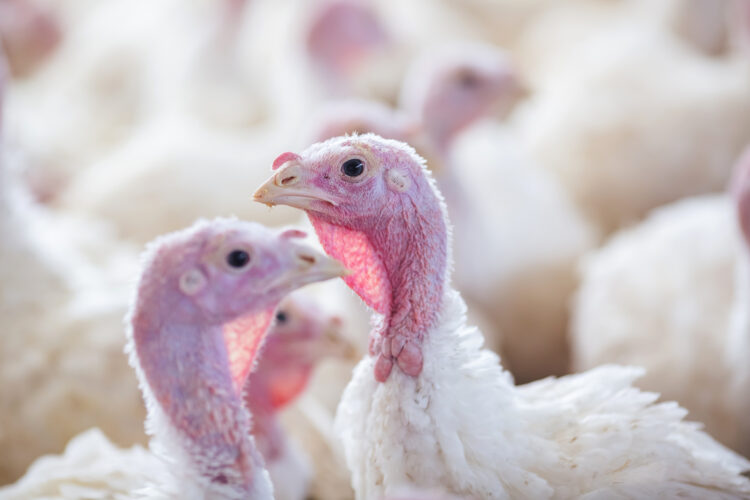Avian influenza confirmed at Sanpete County poultry farm

Officials with the Utah Department of Agriculture and Food (UDAF) confirmed a diagnosis of highly pathogenic avian influenza (HPAI) on a turkey farm in Sanpete County last week.
SANPETE COUNTY — The Utah Department of Agriculture and Food has confirmed a case of highly pathogenic avian influenza, or HPAI, at a commercial turkey facility in Sanpete County, prompting swift action to contain the outbreak.
HPAI is a highly contagious viral disease that affects domestic poultry and wild birds and often leads to high death rates in flocks.
“Commercial turkey facilities in the northern U.S. and here in Utah have been the most impacted by HPAI this fall,” said Dr. Amanda Price, Utah’s state veterinarian. “With migratory bird season just beginning, we may see a greater impact as the season progresses. It is imperative that poultry producers practice strong biosecurity.”
Quarantine and response measures
UDAF is coordinating closely with the U.S. Department of Agriculture’s Animal and Plant Health Inspection Service in response to the incident.
All commercial poultry facilities in the area have been placed under quarantine, and birds at the affected farm will be depopulated to prevent the disease from spreading further.
As part of established response plans, state and federal officials are conducting increased surveillance and testing in areas surrounding the affected flock.
“The loss of this flock is a significant hardship for the producer and their community,” said Kelly Pehrson, Utah’s Commissioner of Agriculture and Food. “Our team is working closely with them to minimize the risk of spread to other facilities. That said, this incident involves a single round of birds from one facility and is not expected to cause a notable impact on the availability of turkeys in Utah or across the country leading up to Thanksgiving. Consumers should feel confident that turkey and poultry products remain safe and readily available.”
Signs of HPAI and safety precautions
UDAF urges all poultry owners–both commercial and backyard flock owners–to watch for signs of HPAI, which include:
- High death loss in flocks
- Nasal discharge
- Decreased appetite or water consumption
- Lack of coordination in birds
Bird owners who observe these signs should contact the State Veterinarian’s Office immediately atstatevet@utah.gov.
HPAI often spreads through wild migratory waterfowl, and can be introduced into domestic flocks by direct contact with wild birds, contaminated equipment, or people moving between flocks. UDAF encourages all poultry producers to review and strengthen their biosecurity plans.
While HPAI is a serious disease in birds, officials emphasize that it does not pose an immediate threat to human health. As a general food safety precaution, poultry and eggs should always be cooked to an internal temperature of 165˚F.
Additional resources
More information about biosecurity practices, including videos and checklists, can be found at ag.utah.gov/poultry-hpai and APHIS Defend the Flock.
Information on avian influenza in humans is available from the Utah Department of Health and Human Services at epi.utah.gov/bird-flu-in-humans.



